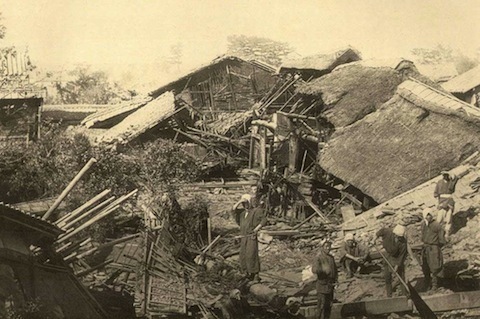Degrees of Fragility

I was all set to end the week with a post about a particularly egregious patent-medicine fraud, but it somehow seems wrong in light of the catastrophe in Japan. We often forget how much our species is at the mercy of the planet, and how quickly everything we treasure can be snatched away. For the moment, I can only take small comfort in the fact that my Japanese friends appear to be present and accounted for.
The silver lining here, though, is that the death toll in Japan would have been much, much worse had the nation not committed long ago to sound engineering. As previously discussed on Microkhan, it is disturbingly easy to predict an earthquake's death toll based on both the magnitude of the tremor and, more important, the quality of the building stock. Scarred by several 19th-century earthquakes that decimated its population, Japan started taking earthquake safety seriously once it attained the requisite level of prosperity to enforce building codes. There is no way to calculate how many thousands of lives were saved today by the bureaucracy ensures that constructions firms don't cut corners, and that private builders are appropriately punished for using sub-standard materials or ill-conceived designs.
One point to reiterate from my earlier earthquake post: A Nobel Prize certainly awaits the man or woman who can come up with a low-cost building material capable of mimicking timber's strength. Japan is prosperous enough to afford materials that can bend and sway when rocked by the Earth; less fortunate nations are stuck with concrete, which is the last thing you want your house to be made of when a mega-tremor strikes.
(Photo from The Great Earthquake of Japan, 1891, via Baxley Stamps)




